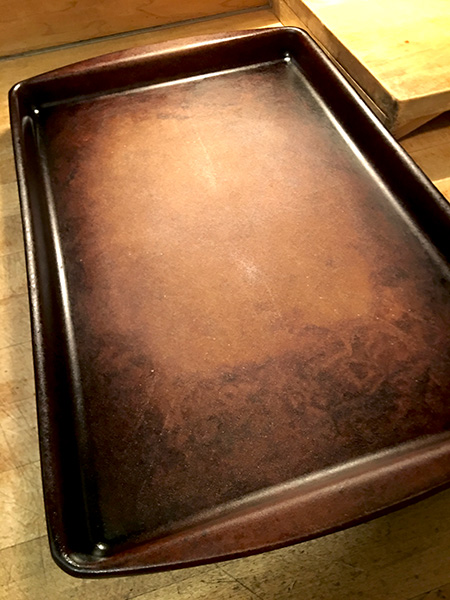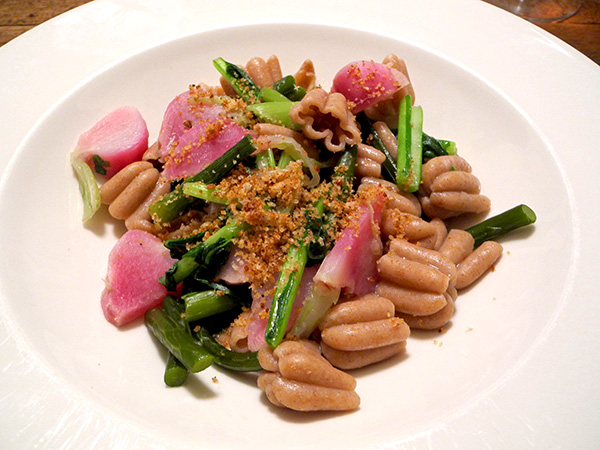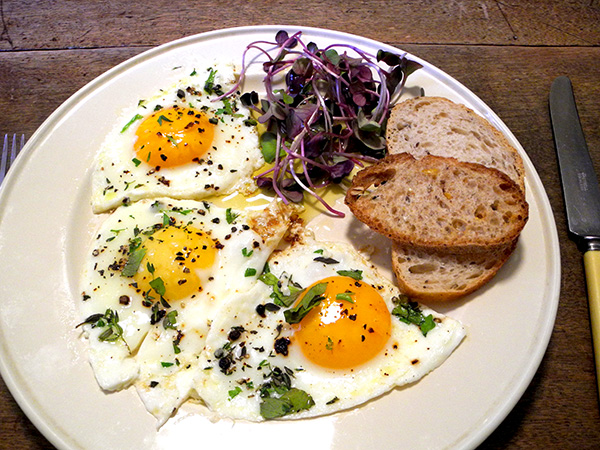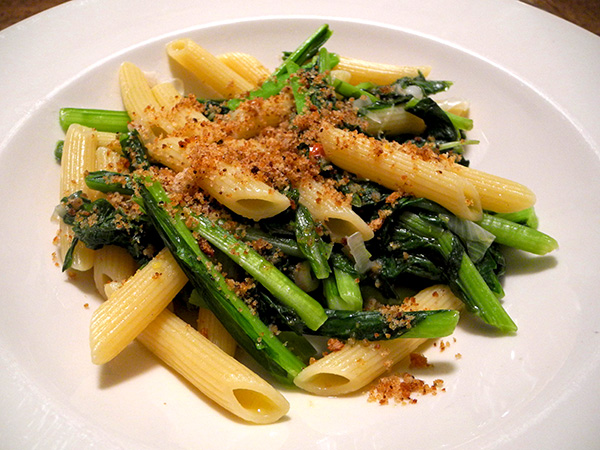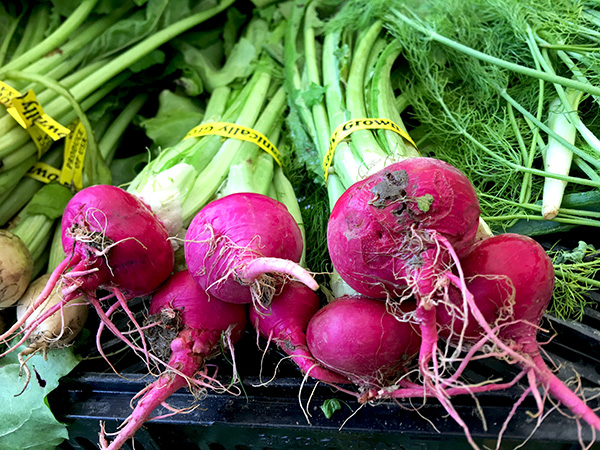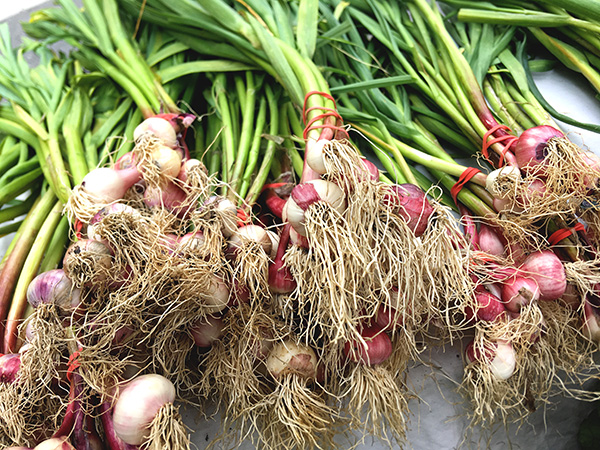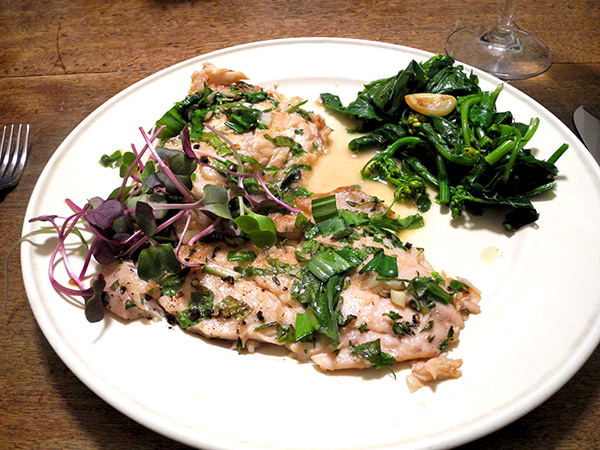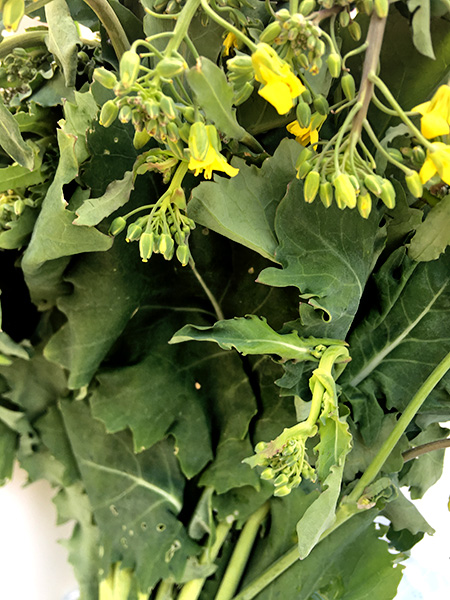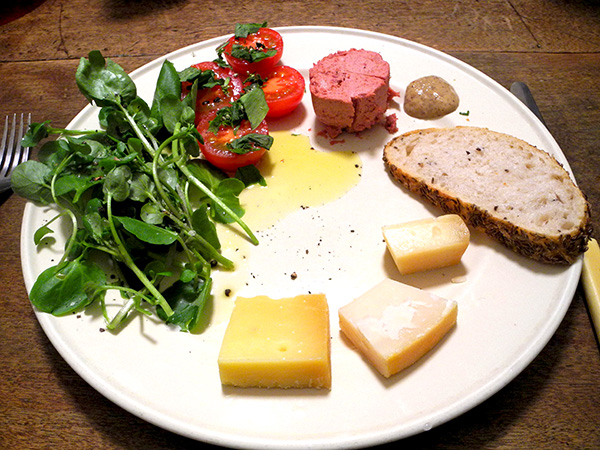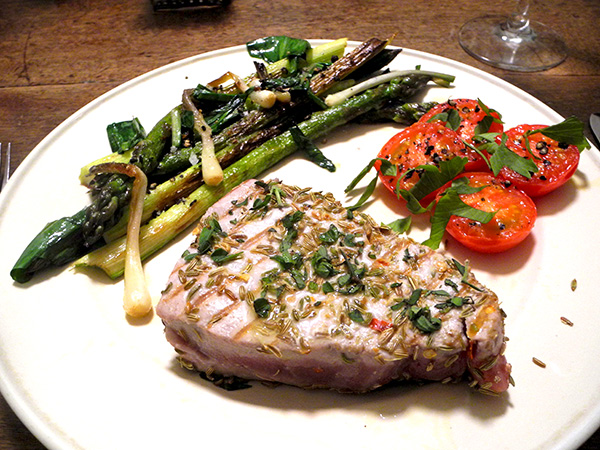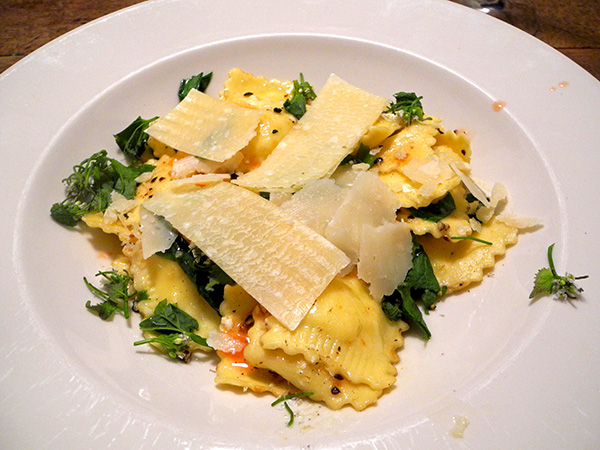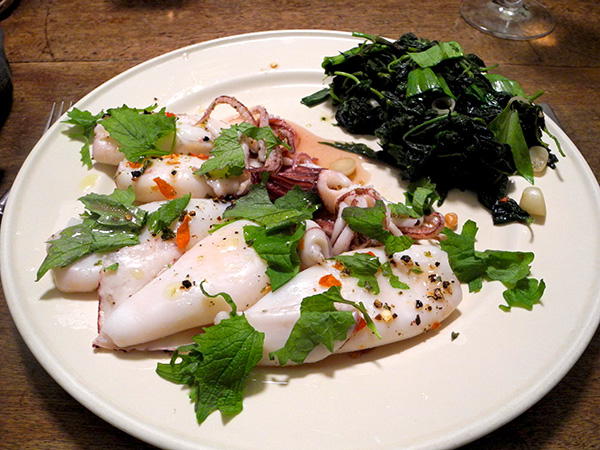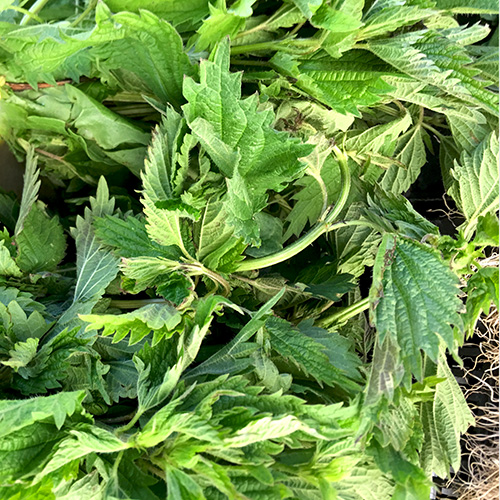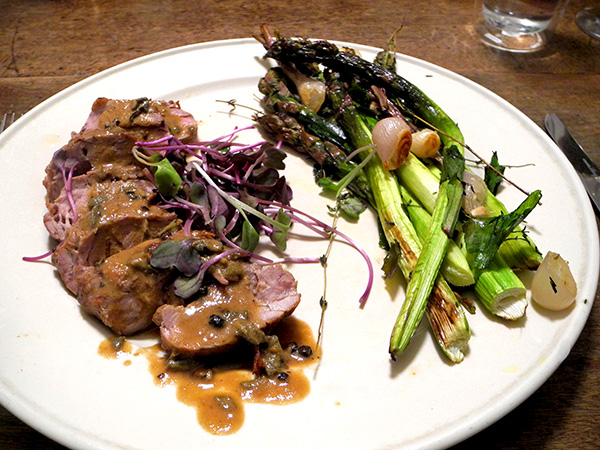
Part of my life seems like it’s lived in the 19th century, or at least the first part of the 20th. I buy my comestibles from local farmers or maybe their helpers. I cook at home for our little family, and sometimes for guests as well, almost every night. I wash dishes by hand. We use cloth napkins exclusively, even if we usually keep the same ones over several days, replacing them in our assigned napkin ring (this is definitely a homey 19th century thing).
My food venders know me, and aware that I’m open to almost anything new, they occasionally suggest I try something out of the ordinary (I note here that “open to anything new” may not be something universally associated with the 19th century). That’s how this cut ended up on our table Sunday night. It started with, “Hey would you like something special?”
I’m not saying pork tenderloin is exactly out of the ordinary, but it’s shown up on this site only once in the 8 years it’s existed.
I didn’t have to be sold on the beautiful purple asparagus I saw mixed with some green ones at another farm stall just steps from that where I had found the pork a few days earlier. I knew that the purple stalks lose almost all of their color once cooked, but they were gorgeous. As their numbers were fewer than the green, I gathered up some of both.
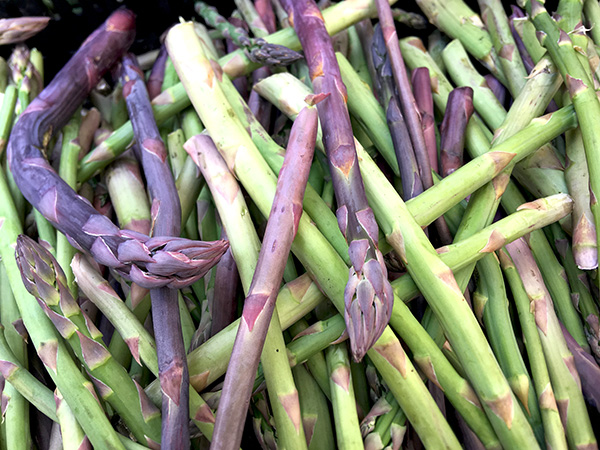
Our spring ramps are gaining a little weight by the end of May, and this may have been the last we’ll see of them, at least from some forager/farmers. I included some with the asparagus.
- one 11-ounce pork tenderloin from Consider Bardwell Farm, seasoned on all sides with sea salt and freshly-ground black pepper, seared inside a tin-lined copper gratin pan, before a mixture of about a quarter cup of water, a third of a cup of white wine (Fattoria Sardi Vermentino 2015), 2 tablespoons of Dijon mustard, and several tablespoons of chopped fresh sage from Eataly (with hindsight, I might have left the herb whole) were poured over it, the pan placed inside a preheated (425º) oven and the meat roasted, the sauce spooned over it half way through, for about 15 minutes, or until an instant-read thermometer inserted into the thickest part of the meat registered 145 degrees, removed, and allowed to rest for about 10 minutes before it was sliced, thickly, arranged on 2 plates, the sauce, which had been produced almost naturally, poured on top (if necessary, it can be thinned by adding more water, or thickened by raising the flame, both while stirring), a little micro purple radish added as garnish
- ten or 12 thick asparagus spears (1.3 lbs) from John D. Madera Farm, an equal number green and purple, trimmed and their stems peeled, and the fat white sections (green leaves removed) of an equal number of late-season ramps (the bulbs grow larger as their short season advances) from Berried Treasures Farm, along with a handful of thyme branches from Stokes Farm, rolled with a little more than a tablespoon of olive oil, a little sea salt, and a bit of freshly-ground Tellicherry pepper inside a large Pampered Chef unglazed ceramic pan and roasted in the pan at 425º for about 20 minutes, while 6 or 8 of the reserved green ramp leaves, roughly-chopped, were thrown onto the top and pushed around a bit just before the asparagus and ramp bulbs had finished cooking, at which time the vegetables were removed to 2 plates and drizzled with juice from a sweet orange-colored local lemon from Fantastic Gardens of Long Island
- the wine with this course was an Italian (Sicily) Liotro Inzolia 2015, from Garnet Wines
There was also a small primi, served just before the tenderloin.
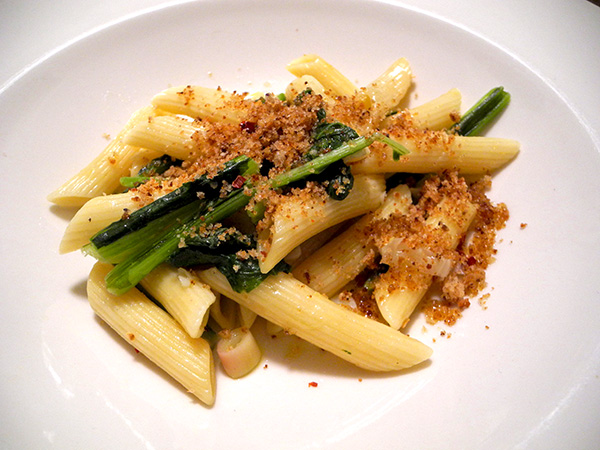
- the music throughout was the album, ‘Konzerte Am Dresdner Hof‘, which includes works by Francesco Maria Veracini (1690-1768), Johann David Heinichen (1683-1729), Johann Friedrich Fasch (1688-1758), Johann Georg Pisendel (1687-1755), and Johann Joachim Quantz (1697-1773)
